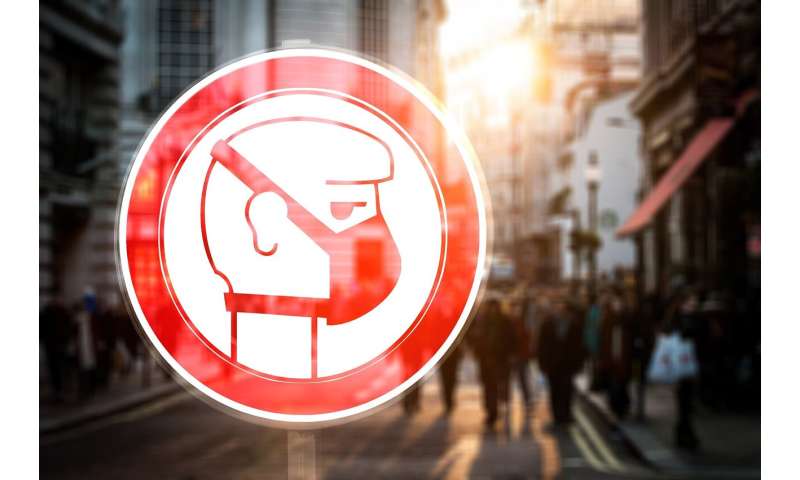Home » Health News »
Australia locks down millions as US struggles to contain virus

Australia on Tuesday ordered millions of people locked down in its second-biggest city to combat a surge in coronavirus cases, as nations across the planet scrambled to stop the rampaging pandemic.
While some countries are worried about second waves of infections, the worst-hit—the United States—was still “knee-deep” in its first, its top expert warned, with cases also surging in India and Brazil.
Global infections have topped 11.6 million with more than 538,000 fatalities, and the lingering threat was illustrated by Australia—which had largely suppressed its outbreak—locking down five million people in Melbourne to fight a recent spike.
“We can’t pretend” the crisis is over, said Daniel Andrews, premier of Victoria state, after its capital Melbourne reported 191 new cases in 24 hours.
“These are unsustainably high numbers… There is simply no alternative (to the lockdown) other than thousands and thousands of cases and potentially more.”
The restrictions in the Melbourne metropolitan area would begin at midnight Wednesday and last at least six weeks, while Victoria state will effectively be sealed off from the rest of the country a day earlier.
Melbourne residents are worried the lockdown will create further economic hardship.
“I just started this job last week and the new restrictions mean I’ll be out of a job and out of a pay cheque again,” Hotel Lincoln bartender Phoebe Askham told local broadcaster 7News.
‘Knee-deep’
The United States is still dealing with its first coronavirus wave, warned Anthony Fauci, its top infectious disease expert.
Officials have said hospitals in some parts of the country are in danger of being overwhelmed, with many states hit particularly hard after they eased virus restrictions.
“We are still knee-deep in the first wave of this,” Fauci said Monday, adding that the US never managed to suppress infections to a manageable level before reopening like some European nations.
“We went up, never came down to baseline, and now we’re surging back up. So it’s a serious situation that we have to address immediately.”
The US death toll hit 130,000 on Monday, with confirmed infections fast approaching three million.
Some mayors have said their cities exited lockdown too early, as President Donald Trump tried to downplay the severity of the crisis, instead prioritising economic reopening.
But in the latest example of the cost to people’s normal lives, the US government said it would not allow foreign students to remain if all their classes are moved online because of the virus.
Bolsonaro tested
Around the world, governments are struggling to balance the need to reopen economies wrecked by weeks of lockdown measures against the risk of new infections.
Italy’s health minister ordered a one-week suspension of flights to Rome from Bangladesh on Tuesday, after 21 passengers arriving from Dhaka tested positive, adding to the number of cases with the Bangladeshi community in the Lazio region surrounding Rome.
Lazio’s top health official Alessio D’Amato called it a “veritable viral ‘bomb’ that we’ve defused”.
There have been explosions of infections across the world, from Iran, which announced 200 new deaths on Tuesday, and South Africa to India and Brazil—whose virus-sceptic President Jair Bolsonaro was tested for the virus after showing symptoms including fever.
The far-right leader has lashed out at social distancing measures, frequently flouting them, and on Saturday published photos in which he was not wearing a mask at a July 4 event with the US ambassador.
Brazil is the second worst-hit country in the world with more than 65,000 deaths and 1.6 million infections.
Schools in… and out
In China, nearly 11 million students began taking the gruelling annual college entrance exam known as Gaokao on Tuesday following a month-long delay.
Students and invigilators had to track their health during the 14 days prior to the exam. Students from high-risk areas have to wear masks during the tests.
“Though there are enough measures to protect us from contracting the virus, I am still feeling a bit nervous about gathering in a public area, but I have to take the test,” said one student Zhao Kexin in Beijing where a new outbreak last month raised fears of a second wave.
But in Kenya, primary and secondary school children were told that their academic year was over and there would be no exams.
Meanwhile, the head of the prestigious Royal Society science journal said Tuesday that people who refuse to wear face masks during the pandemic should be stigmatised the same as drink drivers.
Source: Read Full Article



